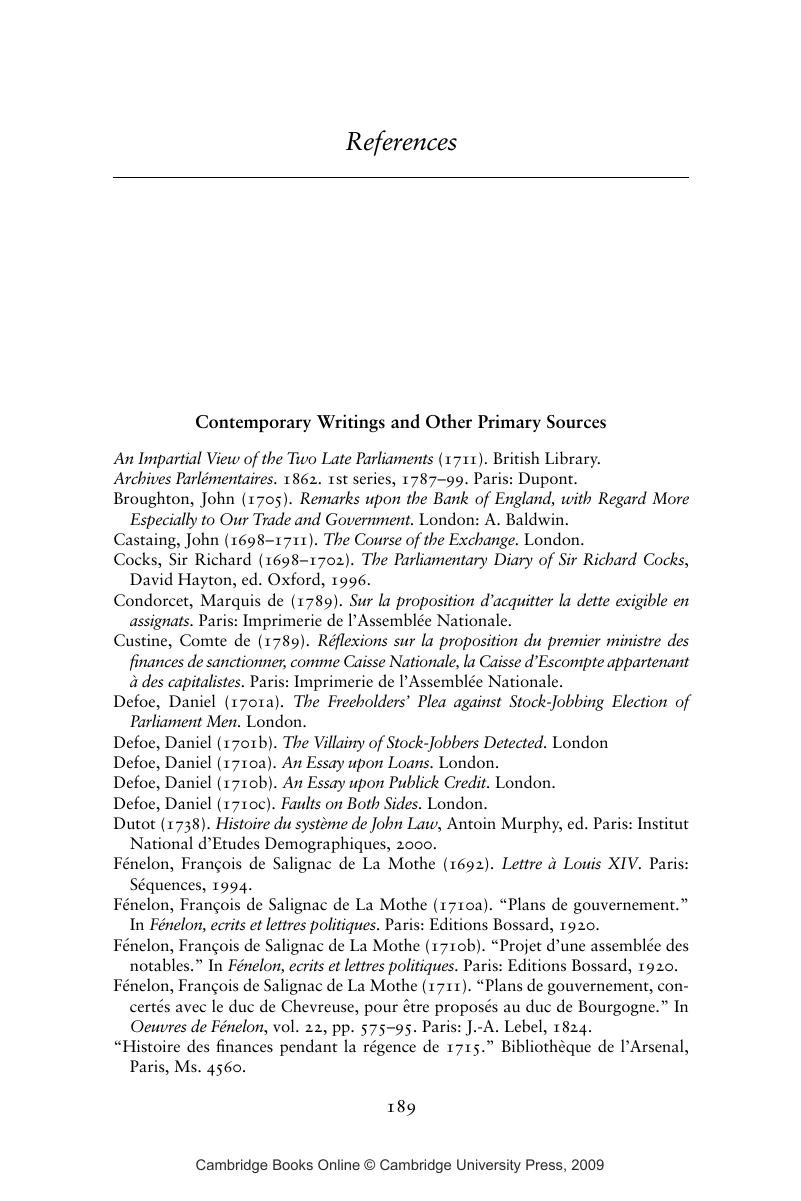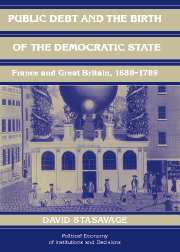Book contents
- Frontmatter
- Contents
- Acknowledgments
- 1 Introduction
- 2 A Model of Credible Commitment under Representative Government
- 3 Historical Background: Sovereign Borrowing in Europe before 1688
- 4 Trends in French and British Sovereign Borrowing, 1689–1789
- 5 Partisan Politics and Public Debt in Great Britain, 1689–1742
- 6 Partisan Politics and Public Debt in France, 1689–1789
- 7 Stability of Representative Institutions in France and Great Britain
- 8 Conclusion
- Appendix
- Reference
- Index
- References
Reference
Published online by Cambridge University Press: 05 November 2009
- Frontmatter
- Contents
- Acknowledgments
- 1 Introduction
- 2 A Model of Credible Commitment under Representative Government
- 3 Historical Background: Sovereign Borrowing in Europe before 1688
- 4 Trends in French and British Sovereign Borrowing, 1689–1789
- 5 Partisan Politics and Public Debt in Great Britain, 1689–1742
- 6 Partisan Politics and Public Debt in France, 1689–1789
- 7 Stability of Representative Institutions in France and Great Britain
- 8 Conclusion
- Appendix
- Reference
- Index
- References
Summary

- Type
- Chapter
- Information
- Public Debt and the Birth of the Democratic StateFrance and Great Britain 1688–1789, pp. 189 - 206Publisher: Cambridge University PressPrint publication year: 2003



